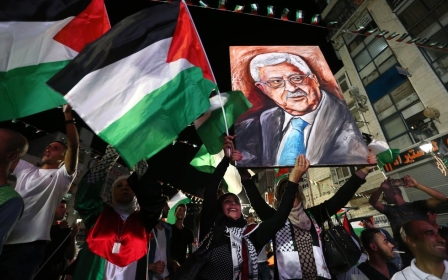2 Israeli settlers killed in West Bank drive-by shooting

Two Israeli settlers died in a drive-by shooting in the occupied West Bank on Thursday, local media reported.
An Israeli police source told the Palestinian news agency Maan that the incident occured in the evening between the Israeli settlements of Itamar and Elon Moreh in the northern West Bank.
Several shots were fired at the settlers' vehicle, killing two adults. The shooter drove off into a nearby Palestinian village, according to Israeli police.
Four children who were in the back seat of the car were not injured in the attack, the Israeli newspaper Haaretz reported.
But an Israeli security source told AFP that the children were lightly wounded and taken to hospital.
Haaretz added that there have been other shooting incidents in the area in recent months, with vehicles belonging to settlers being fired upon.
Israeli security forces flooded the sector where the incident occurred, an AFP journalist said.
Later on Thursday night, the Israeli military declared all of the northern Nablus district a closed military zone following clashes between Israeli settlers and Palestinians, Middle East Eye contributor Sheren Khalel tweeted, citing local media.
And Israeli army spokesman Peter Lerner said on Twitter that the army had deployed four units in the area "to prevent escalation & facilitate op to catch terrorist".
A group of young Israeli settlers, some hooded, gathered later at the scene of the attack and threw stones at passing Palestinian vehicles, according to Israeli television.
The attack came after court documents showed Israel was considering authorising nearby settlement outposts set up by hardline settlers without the government's permission.
Responding to the attack from New York, Israeli Prime Minister Benjamin Netanyahu said the attack was a "result of Palestinian incitement" that led "to an act of terror and murder," Haaretz reported.
Meanwhile, Israeli's Minister of Agriculture Uri Ariel said: "The response to this terrible murder must be the annexation of Area C and the expansion of settlements in Jerusalem and Judea and Samaria (the West Bank)."
In a seperate incident earlier on Thursday, Israeli forces shot and injured a 28-year-old Palestinian during clashes between Israeli settlers and Palestinians south of Bethlehem, medics told Maan.
Clashes started after an Israeli settler opened fire at a school in the village of Tuqu, the Palestinian news agency quoted locals as saying.
When the shooter tried to leave the scene, Palestinians threw rocks at the settler's vehicle, smashing a window and lightly hurting the alleged perpetrator, according to local accounts.
On Wednesday, Palestinian President Mahmoud Abbas told the UN General Assembly in New York that Israel's refusal to release prisoners, stop settlement activity and abide by international law meant the Palestinians could not be bound by past agreements between the two sides.
However, after Thursday's drive-by attack attack, Israel's hardline Education Minister Naftali Bennett issued an angry statement.
"The time for talks (with the Palestinians) is over," he said. "It is time to act."
"A people whose leaders support murder will never have a state."
Nearly 550,000 Israelis live in settlements in the occupied West Bank, including East Jerusalem, in contravention of international law.
Clashes occasionally take place between the settlers and local Palestinians, but often such encounters are prevented by Israeli soldiers and Palestinian security forces.
But attacks by Israeli settlers against Palestinian property are commonplace in the West Bank. In July, an arson attack on a family home in the north of the occupied territory killed a Palestinian couple and their 18-month-old son. The word "revenge" was found written on the wall of the home in Hebrew.
Stay informed with MEE's newsletters
Sign up to get the latest alerts, insights and analysis, starting with Turkey Unpacked
Middle East Eye delivers independent and unrivalled coverage and analysis of the Middle East, North Africa and beyond. To learn more about republishing this content and the associated fees, please fill out this form. More about MEE can be found here.




